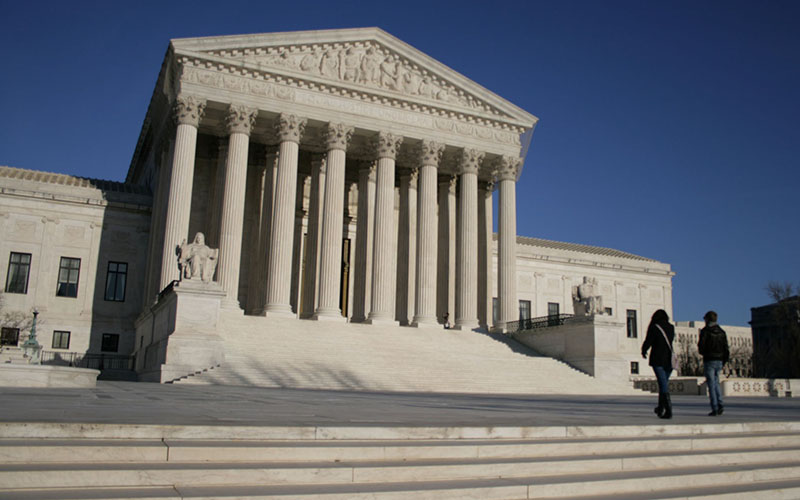WASHINGTON – The Supreme Court said Tuesday that two Arizona firefighters can sue the Mount Lemmon Fire District for age discrimination after being laid off when they were the oldest employees in the department.
The unanimous court rejected the department’s argument that the Age Discrimination in Employment Act does not apply to government agencies with fewer than 20 employees, an exemption enjoyed by small private businesses.
The opinion by Justice Ruth Bader Ginsburg said that the law leaves “scant room for doubt that state and local governments are ’employer(s)’ covered by the ADEA regardless of their size.”
Attorneys for the fire district said Tuesday that while they were “glad that we finally have clarity on how the law is supposed to apply across the country,” they were also “frustrated with the result.” The ruling, they said, could be financially crippling to small agencies like theirs.
“The reality is of course there are financial repercussions because what this decision does is it opens up liability and exposure for small public districts,” said Jeff Matura, an attorney for the fire district. “And the reality is that lawsuits cost money, they take time, they take manpower and other resources.”
Ginsburg rejected that argument, saying “experience suggests” otherwise.
“For 30 years, the Equal Employment Opportunity Commission has consistently interpreted the ADEA as we do today,” she wrote. “No untoward service shrinkages have been documented.”
An attorney for the firefighters, Don Awerkamp, said he was “very happy with the result. And now we get to take the case to trial and I think we stand a very good chance of prevailing at trial.”
The case began in 2009 when the Mount Lemmon Fire District laid off Capt. John Guido, then 46, and Capt. Dennis Rankin, then 54, in a budget-cutting move. The two sued for age discrimination.
The fire district argued that Guido and Rankin were not fired for their age, but because they had not participated in any wildland volunteer assignments. Besides, the department said, it was not subject to the discrimination because it employed only 13 people.
A district court agreed that the law did not apply and ruled against Guido and Rankin. But that ruling was overturned in June 2017 by a panel of the 9th U.S. Circuit Court of Appeals, a decision that was at odds with four other circuit courts.
That led the Supreme Court to agree to hear the case and settle the issue.
The high court’s Tuesday ruling only means that Guido and Rankin can go back to district court and argue their case.
Awerkamp said there is still the possibility of a settlement, but that there is plenty of evidence on the firefighters’ side if the case goes to trial.
He challenged the department’s claim that the two did not participate in wildland assignments, but were filling a department requirement that a captain or the chief be on duty in the district at all times.
Awerkamp said the chief said he would protect paramedics in the layoffs, even though Guido was a paramedic, and that another employee who was promoted to captain was making more than Rankin, so “it isn’t like they just laid off the most expensive employees.”
Matura said “it is too soon to know how for sure how exactly it’s going to progress,” but that fire district officials “feel very confident with their defenses.”
“Our defenses haven’t changed since day one. They’ve just been put on hold while we dealt with whether law applies or not,” he said.
The U.S. Equal Employment Opportunity Commission, which filed a brief supporting the firefighters, said it was “very pleased with the decision.”
The ruling “will mean that employees of small political subdivisions will be covered by the age discrimination act, just like employees of larger public political subdivisions,” said Anne Occhialino, a senior appellate EEOC attorney. “It just kind of puts them on equal footing.”
Justice Brett Kavanaugh, who had not been sworn in by the time of the Oct. 1 hearing of the Mount Lemmon case, played no part in Tuesday’s decision.
